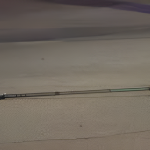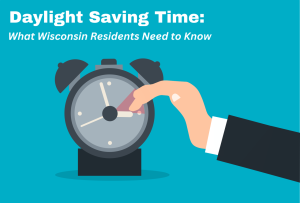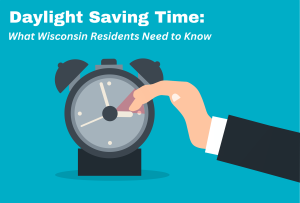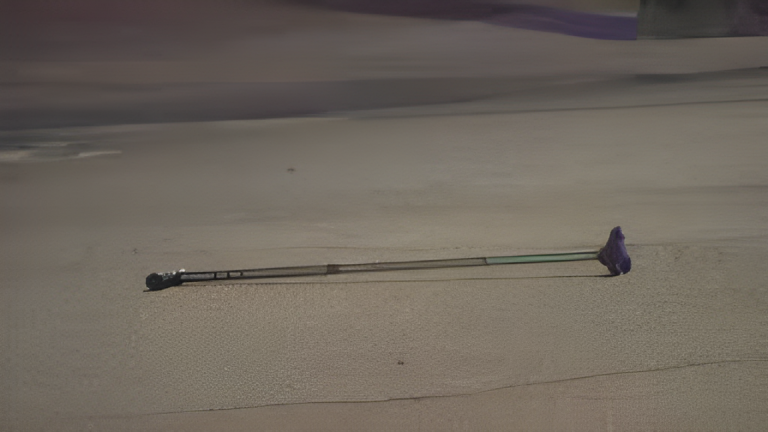Daylight Saving Time (DST) is a familiar part of life for many people in Johnstown, Pennsylvania, and across the United States. Every year, as the days begin to grow longer, clocks are adjusted to make better use of natural daylight. While the concept is easy to understand, the specific dates and the impact on our routines can often be confusing. In this article, we will explore all you need to know about Daylight Saving Time in Johnstown for the spring of 2025, including when it begins, how it affects your daily life, and tips for making the adjustment easier.
What is Daylight Saving Time?
Daylight Saving Time is the practice of adjusting the clock forward by one hour in the spring and setting it back by one hour in the fall. This simple change results in more daylight during the evening hours, which allows people to spend more time outside in the daylight after work or school. While the idea is straightforward, the time shift can sometimes be hard on our daily schedules, especially when it involves losing an hour of sleep.
When Daylight Saving Time begins in the spring, the clock “springs forward,” and when it ends in the fall, the clock “falls back.” In this article, we will specifically focus on the start of DST in 2025, which is scheduled for the spring.
When Does Daylight Saving Time Start in 2025?
In 2025, Daylight Saving Time in the United States will begin on Sunday, March 9, 2025. On this day, at exactly 2:00 AM, the clocks will move forward by one hour. That means at 2:00 AM, the time will shift to 3:00 AM. So, don’t forget to adjust your clocks before you go to bed on Saturday, March 8, to avoid confusion on Sunday morning.
The start of DST in March marks the beginning of longer days and shorter nights, and it is generally seen as a sign that spring is just around the corner. The idea behind this change is to make better use of natural daylight during the warmer months when people are more likely to be awake and active for longer periods of time.
Why Does Daylight Saving Time Start in the Spring?
Daylight Saving Time was first introduced during World War I as a way to conserve fuel by making better use of natural light. By moving the clock forward in the spring, people could enjoy longer evenings, reducing the need for artificial lighting in homes and businesses. While the energy savings are often debated, the main reason for DST today is to allow people more time in the daylight after work or school.
Although Daylight Saving Time is not observed everywhere in the U.S., most regions, including Johnstown, follow this practice. DST is a way to maximize the use of daylight, particularly in areas farther from the equator, where the difference between day and night length can vary significantly throughout the year.
How Does Daylight Saving Time Affect Daily Life in Johnstown?
The start of Daylight Saving Time can have both positive and negative effects on daily life in Johnstown. Here are some of the ways the time change can impact the community:
- Sleep Disruptions: One of the most immediate effects of DST is the disruption of sleep. On the day the clocks move forward, everyone loses an hour of sleep. This change can make you feel groggy, tired, and less alert, especially in the first few days. For some people, the loss of sleep may even affect their mood and productivity. To minimize the impact, it’s a good idea to gradually adjust your sleep schedule in the days leading up to the time change by going to bed 15 minutes earlier each night.
- Health Considerations: While the shift to Daylight Saving Time might seem like a small change, it can have a significant effect on your health. Sleep disruption caused by the time change has been linked to an increased risk of heart attacks, strokes, and other health problems in the days immediately following the switch. It’s important to take care of your body during this time by getting enough sleep, staying hydrated, and reducing stress.
- Productivity Changes: Many people find that their productivity is affected by the shift in time. The loss of one hour of sleep can make it harder to concentrate, and it may take a few days for your body to adjust. However, once you adapt, the longer evenings provide a better opportunity for after-work activities such as exercise, outdoor sports, or spending time with family and friends.
- Impact on Work and School Schedules: Daylight Saving Time can impact work and school routines. For example, schoolchildren may be more tired than usual, and adults may feel sluggish when they wake up. However, the added daylight in the evening allows people to extend their outdoor activities after work or school. This adjustment can provide a much-needed boost to physical and social well-being.
- Driving and Safety: The shift to daylight in the evening can also affect driving conditions. Longer daylight hours mean that it’s safer to be on the road in the late afternoon or early evening, which can help reduce accidents. However, the change in light conditions may take some getting used to, especially during the first few days of the time change.
How to Prepare for Daylight Saving Time in Johnstown
Here are a few tips to help make the adjustment to Daylight Saving Time in Johnstown smoother:
- Adjust Your Sleep Schedule: As mentioned earlier, gradually shifting your bedtime and wake-up time a few days before the time change can help you adjust more easily. Going to bed 15 minutes earlier each night leading up to Sunday, March 9, will help your body get used to the new time.
- Get Plenty of Sunlight: Exposure to natural sunlight during the day helps regulate your internal clock and signals your body that it’s time to wake up. Try to spend time outside, especially in the morning, to adjust to the time change and feel more energized.
- Avoid Caffeine and Alcohol Late in the Day: To help improve the quality of your sleep during the adjustment period, avoid consuming caffeine or alcohol in the late afternoon or evening. These substances can disrupt your sleep patterns and make it harder to fall asleep at the right time.
- Stay Active: With longer daylight hours, it’s a great time to engage in outdoor activities. Going for a walk, jog, or bike ride after work or school will help your body adjust to the time change and provide the added benefits of exercise and fresh air.
- Be Patient: It’s normal for your body to take some time to adjust to the new time. The first few days may feel a little off, but most people adapt within a week. Be patient with yourself and take things slowly.
Why Do Some People Want to End Daylight Saving Time?
While Daylight Saving Time has been in place for over a century, there has been growing debate about whether it should continue. Some people argue that the disruption to sleep patterns and the potential health risks outweigh the benefits. Others believe that the energy savings are no longer significant in today’s world, with modern technology reducing the need for extra daylight in the evenings.
Several states, including California and Florida, have explored the possibility of ending Daylight Saving Time altogether or making it permanent. While the debate continues, for now, most of the United States will continue to observe DST, including the residents of Johnstown.
Conclusion
Daylight Saving Time in Johnstown will begin on Sunday, March 9, 2025. At 2:00 AM, clocks will move forward by one hour, giving people more daylight in the evenings. While the change can cause disruptions to sleep and routines, the longer days offer more opportunities to enjoy outdoor activities after work or school. By adjusting your sleep schedule gradually and getting plenty of sunlight, you can make the transition smoother and enjoy the benefits of the added daylight.
Disclaimer – Our editorial team has thoroughly fact-checked this article to ensure its accuracy and eliminate any potential misinformation. We are dedicated to upholding the highest standards of integrity in our content.

























+ There are no comments
Add yours